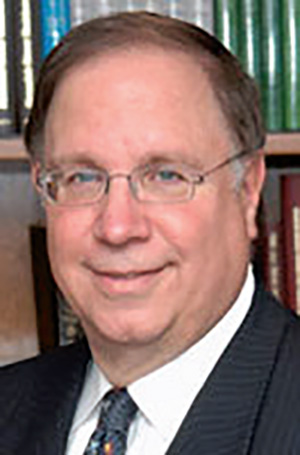
The most recent effort to trivialize the Holocaust for political and propaganda purposes has been the attempt this month by some Democrats in the House of Representatives to compare migrant detention centers for would-be undocumented immigrants on the southern border to concentration camps.
There is nothing new about the endeavor to distort the Holocaust. Israel’s enemies have been relentless at it for years. It’s seen every time they try to equate Nazi behavior to actions undertaken by IDF.
This current use of the Holocaust by some Democrats is an outrageous and contemptible defamation they have engaged in only to assure worldwide exposure to their attempt to demonize President Donald Trump. They are trying to link him to the Shoah—the West’s most egregious example of state-sponsored evil.
Deportations
The detention centers on the southern border are holding stations for people from South and Central America who have voluntarily attempted to enter the United States illegally and have been caught. No one grabbed any of these migrants from their homes and placed them in the detention centers.
On the other hand, Jews caught in the Holocaust were violently uprooted from their homes by the German Nazis and transported in sealed, packed freight and cattle cars to ghettos or camps. Other Jews were transported by boat in equally dire—or worse—circumstances.
In his book, “Hanged at Auschwitz,” Sim Kessel described how he was deported from France to Auschwitz by train in 1943, a year after he was arrested by the Gestapo for participating in the French Resistance. There was nothing voluntary about his deportation:
“Exhaustion overwhelmed the mass of bodies stacked up against each other. The temperature started to rise, as the freight car was enclosed, and the body heat had no outlet. The only place to urinate was through a slot in the skylight, though whoever tried this usually missed, spilling urine on the floor… When dawn rose… we were all quite ill and shattered, crushed not only by the weight of fatigue but by the stifling, moist atmosphere and the foul odor of excrement…. There was no latrine, no provision… On top of everything else, a lot of people had vomited on the floor. We were to live for days on end breathing these foul smells, and soon we lived in the foulness itself.”
Concentration Camps
Historian Henry Friedlander noted that Jewish prisoners in concentration camps that did not have gas chambers were frequently murdered by abuse; malnutrition; starvation; and grossly unsanitary, overcrowded conditions that were plagued by vermin, lice and diseases including typhus and dysentery.
In all the camps, there were unending roll calls (the infamous Appell), corporal punishment (Pruegelstrafe) and hours of compulsory, punishing calisthenics. Jewish prisoners were tortured by being dangled from trees, starved in the camp prison (the Bunker) and shot at while allegedly trying to flee. All concentration camp inmates were subjected to slave labor.
So horrendous were these camps that standard vocabulary cannot adequately express the depravity of the life inmates found there. One of them, Primo Levi, an Italian-Jewish chemist and writer, explained:
“Just as hunger does not mean missing a meal, so our way of being cold has need of a new word. We say ‘hunger,’ we say ‘tiredness,’ ‘fear,’ ‘pain,’ we say ‘winter’ and they are different things. They are free words, created and used by free men who lived in comfort… in their homes. If the Lagers had lasted longer, a new harsh language could express what it means to toil the whole day in the wind with the temperature below freezing, and wearing only a shirt, underpants, cloth jacket and trousers, and, in one’s body, nothing but weakness, hunger and knowledge of the end drawing near.”
An Assault on History
When the offending Democrats in the House use Holocaust imagery, they perform not only a grievous assault on the memory of the 6 million Jews who were murdered, but also on the president and all the men and women who struggle valiantly to assist the hordes of undocumented aliens who illegitimately besiege this country every day.
The misrepresentation of the term “Nazi concentration camp” is a profound warning not only for Jews, for if the history of the Holocaust can be twisted to advance a political agenda, so, too, can other distortions be engaged in with equanimity. For example, is it permissible to equate the tribulations of illegals flooding into the U.S. to the horrific experience of Africans deported from their homes on slave ships to America? If the political goal is simply to elicit empathy for the plight of the undocumented migrants, why not?
To learn from history requires scrupulous attention to objectivity, facts and truth. It is essential not to allow anyone to distort history by engaging in the transmission of false moral equivalences.
In his iconic work, “Rhetoric,” Aristotle wrote that “Men have a sufficient natural instinct for what is true, and usually do arrive at the truth.”
Those of us who value the truth of history must maintain the profound hope that this occurs sooner rather than later.
By Alex Grobman, PhD, and Susan L. Rosenbluth
Dr. Alex Grobman, a Hebrew University-trained historian, is senior resident scholar at the John C. Danforth Society and a member of the Council of Scholars for Peace in the Middle East. Susan Rosenbluth is the editor and publisher of TheJewishVoiceAndOpinion, an online magazine.













